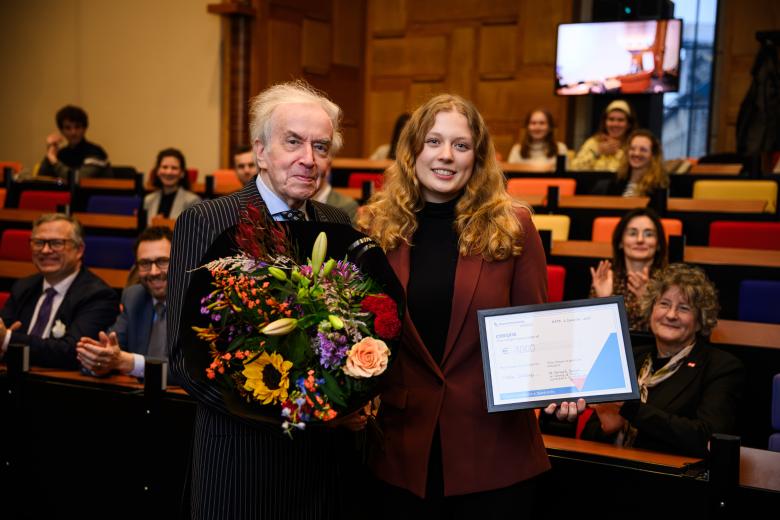Analysing the wide world of law with algorithms
Lawyers are often seen as ‘bookworms’, who are not averse to combing through the literature. But searching through ten thousand court rulings for the one that is most relevant can be too much for even the hungriest bookworm. The pilot project Web of Laws is therefore working to develop tools that quickly filter the relevant rulings for lawyers—with FAIR data use and open science as important anchors.
Sitting in front of his floor-to-ceiling bookcases, you might think that Prof. Gijs van Dijck is a ‘traditional’ lawyer. But then you haven’t yet heard him talk about his work—the collaboration with knowledge engineers and other data specialists, with whom he wants to make the wide world of law accessible to as many people as possible—also to non-lawyers, or the “lawyers who chose this field for a reason” or, in other words, have little affinity for technology.
Read the full text of Analysing the wide world of law with algorithms
Also read
-
Maastricht Consulates Prize on EU Law 2025 Awarded
On 2 December, the Maastricht Consulates Prize on EU Law 2025 was awarded at the Faculty of Law of Maastricht University to Merle Sandhop.
-
Celebrating 10 Years of Shelter City Maastricht
The Maastricht Centre for Human Rights was delighted to celebrate the 10-year anniversary of Shelter City Maastricht.
-
New Study Published on Protecting Vulnerable Persons in Migration and Asylum Contexts
Prof. Lilian Tsourdi and Dr. Catherine Warin (University of Lille) co-authored a mapping study on identifying and effectively responding to needs linked with vulnerability in the context of asylum and migration as commissioned by the Council of Europe (Division on Migration and Refugees).